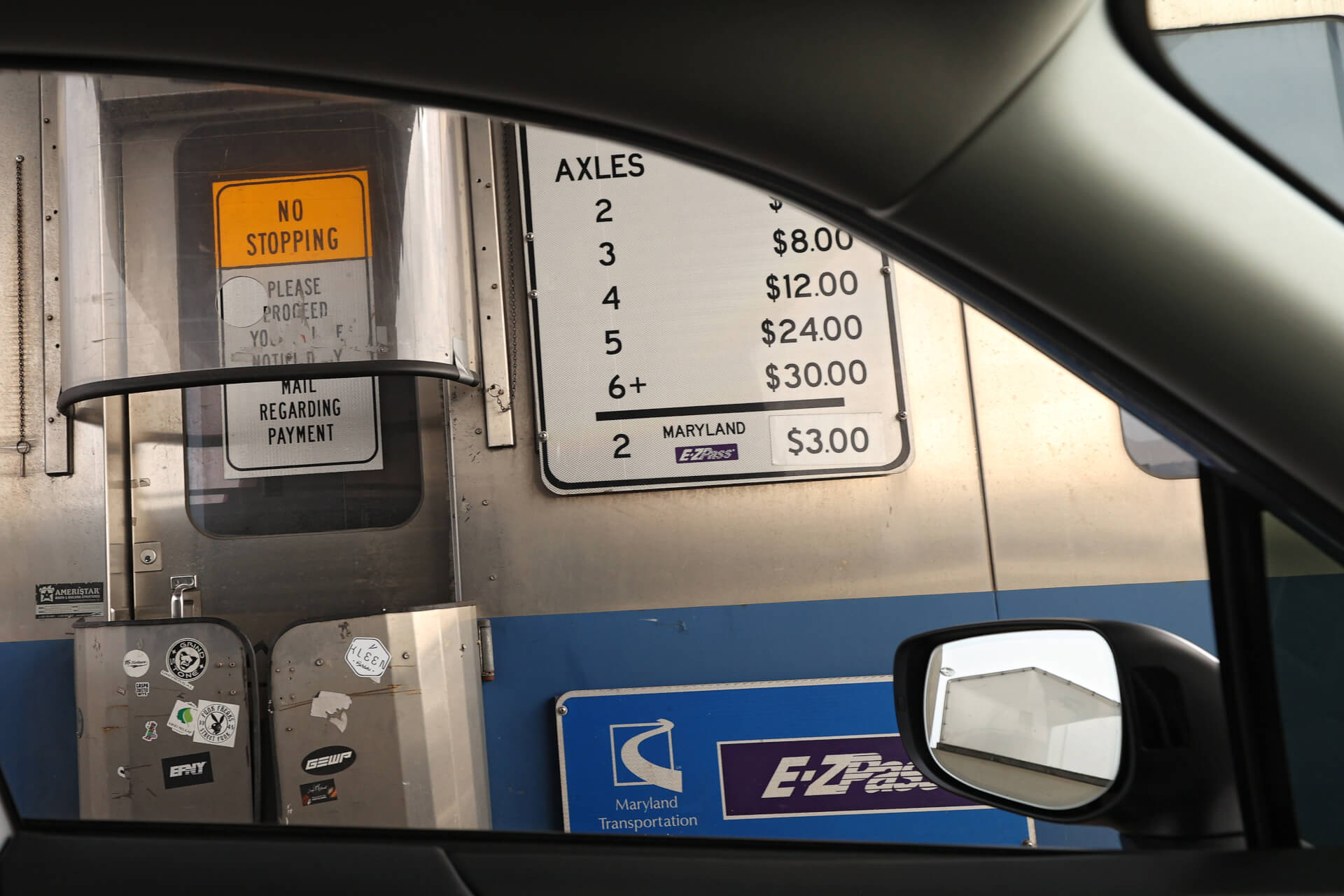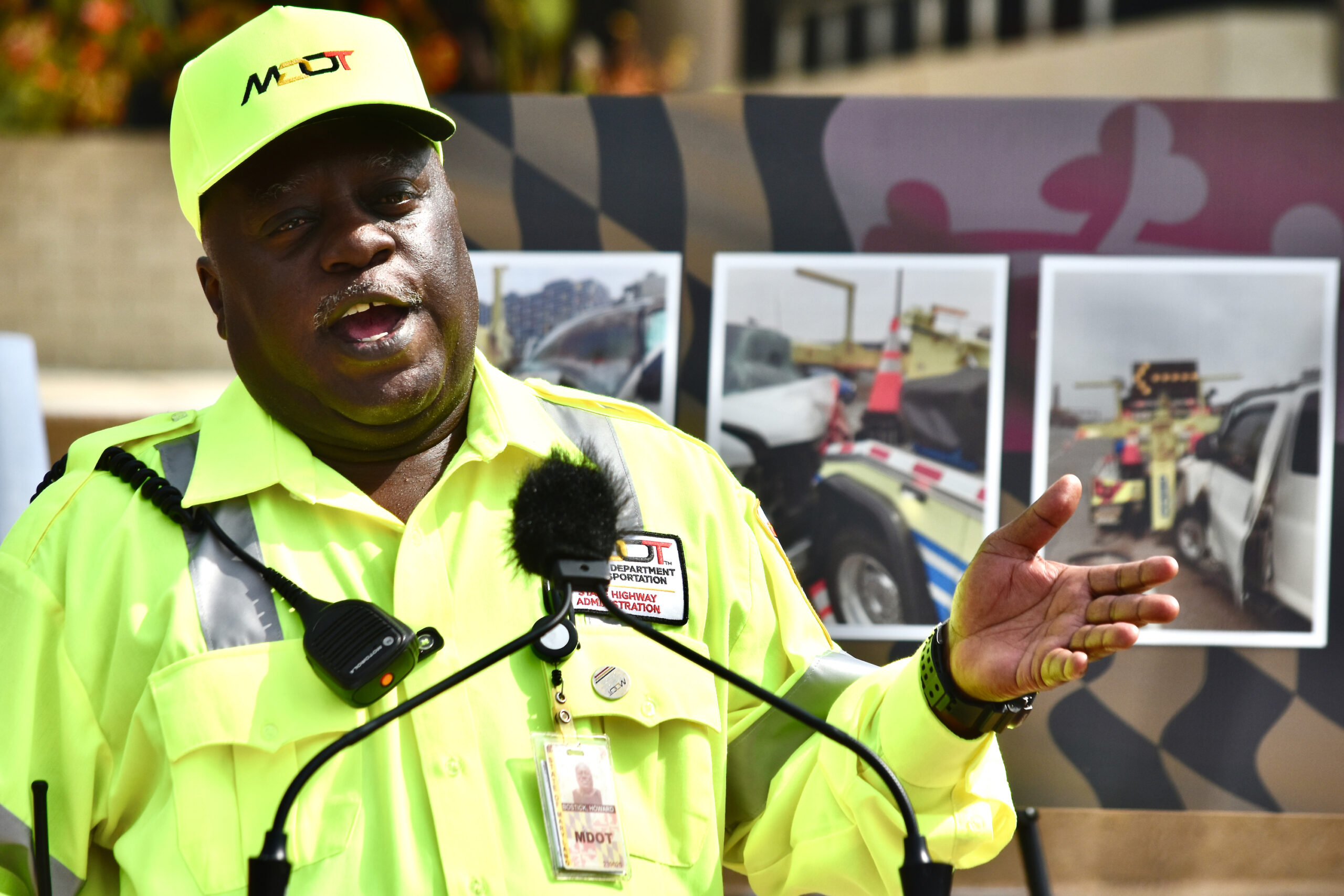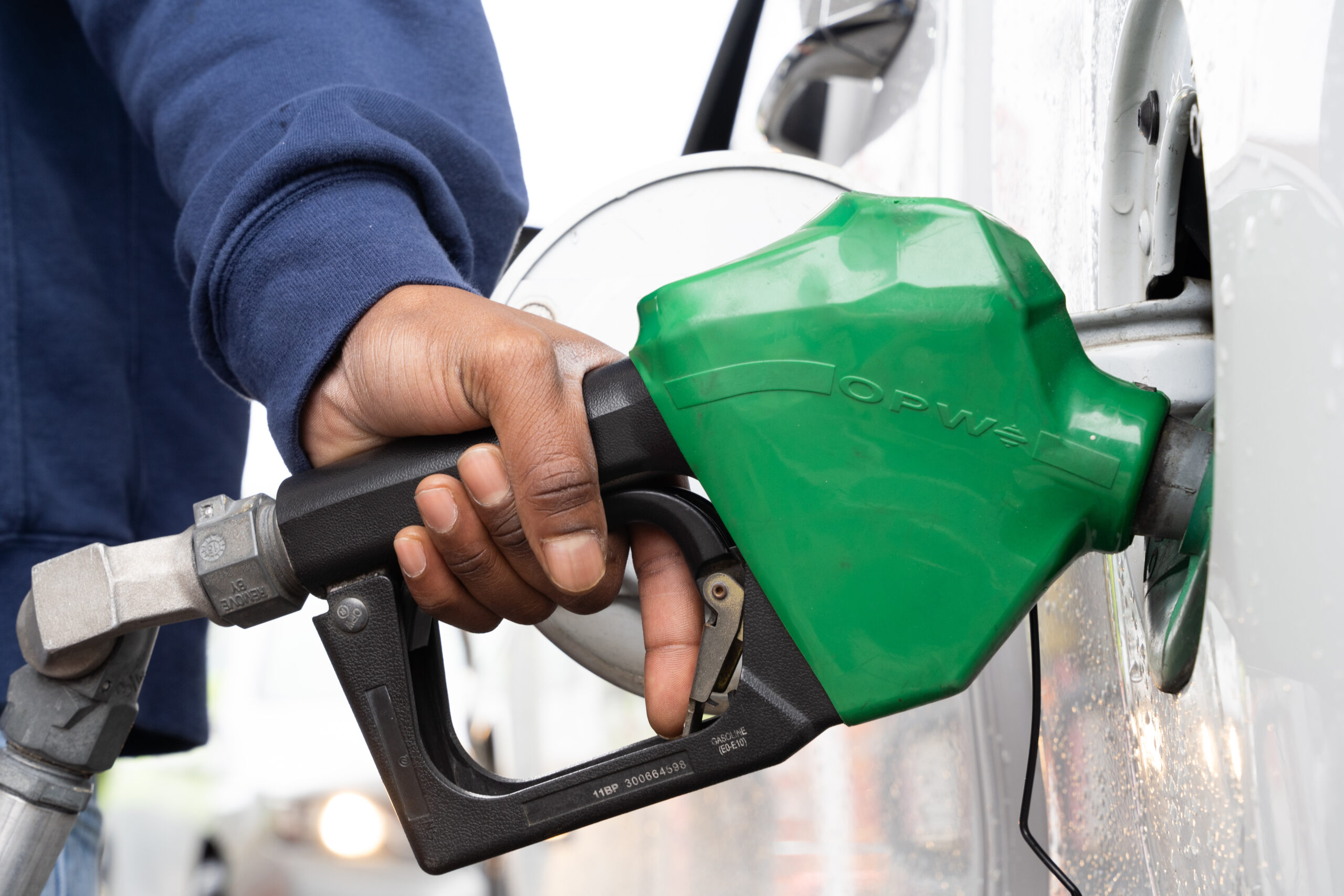Maryland Approves Plan to Help Beleaguered Motorists Settle Unpaid Tolls

Hoping to provide relief for frustrated motorists, the Maryland Transportation Authority voted on Thursday to implement an eight-month “grace period” for people who pay their outstanding toll balances in full.
Under a “customer assistance plan” adopted by the authority’s board, the state will waive civil penalties for motorists who pay their unpaid tolls by Nov. 30.
In addition, MDTA, owner of the state’s toll facilities, will stop forwarding names of customers with overdue accounts to the Motor Vehicle Administration and the state’s collections office.
The plan will be implemented immediately, officials said. They cautioned, however, that penalties for unpaid tolls will continue to appear, temporarily, on customers’ accounts until the authority can update its system to reflect Thursday’s vote. Once the software update is complete, fines will be dropped for motorists who pay back tolls in full.
Motorists who have already paid civil penalties for unpaid tolls will not be reimbursed, officials said.
The plan comes as the authority struggles to dig out from a massive backlog of unpaid tolls, many dating back to 2020. Motorists — both those with E-ZPass transponders and those who choose to go without — have endured hours-long waits to speak with a customer service agent. Many claim they have been assessed penalties for tolls they didn’t incur and double-billed for the same trip.
“We think this is great news for our customers,” said acting MDTA executive director Will Pines. “We’ve heard for a while now that they want to get the wait times down. They don’t want to pay late fees. And they need more time to pay their tolls. And that’s what this plan is designed to try to do.”
A cascade of factors caused a toll-processing backlog that, at one point last year, reached 23 million transactions. Chief among them, top officials have said, were the decision to pull toll-takers off the job at the start of the pandemic to prevent the spread of COVID-19, and the switch from one toll-processing vendor to another.
MDTA temporarily paused toll processing on the all-toll InterCounty Connector (MD 200) last year due to concerns that accounts were being pinged twice for the same trip by new equipment.
Transportation Secretary Jim Ports, who chairs the authority’s board, has also blamed motorists and the news media. At Thursday’s meeting, he said that expired credit cards, improperly mounted E-ZPass transponders, mis-keyed license plate numbers and accounts that lack email addresses have also stymied MDTA’s ability to assess tolls-due properly.
In addition, Ports said news reports have created a false impression that the agency is unable to carry out its core mission. “There are a lot of things being thrown out there by the press,” he said.
“You see a lot of times in the press that people say they only had 30 days to pay,” Ports added. “We had sent out notices, 60-, 90-, sometimes 120-days ahead of time, reminding them that they had these tolls to pay, so they had all that time. Most of our customers did; some of them didn’t take the opportunity to do that.”
Del. Al Carr (D-Montgomery), who tracks MDTA issues closely, said other states that paused in-person toll collection haven’t had suffered the customer-service meltdown that has plagued Maryland.
He pointed to the Aug. 2020 decision to “rush” the conversion to cashless tolls at all tunnels and bridges. “Perhaps that was not the wisest decision,” he said.
“The things they did today are stop-gap and they don’t go far enough to address the systemic problems that they’re having,” Carr added.
AAA Mid-Atlantic public and governmental affairs manager Ragina C. Ali said that while the deferral of tolls during the pandemic may have been well-intended, “the unexpected bills and fees that have mounted… has created a hardship within itself.”
“We are also hopeful that additional staff will enable Marylanders to address their issues in a timely manner, without them having to wait long hours on the phone for a resolution,” she added.
Ali, who has an E-ZPass transponder and an account that replenishes automatically when it runs low, was surprised to find a charge for $2.50 on her account, along with a penalty for non-payment. She said she spent a long time trying to resolve the matter.
MDTA CFO Deb Sharpless said that — based on a civil penalty waiver program that was offered in 2015 — the authority projects the plan to provide $125 million in relief from fines. She said the MDTA will only lose in the neighborhood of $27 million because of the savings the authority will realize in lower debt-collection costs. “This plan is affordable,” she said.




 Creative Commons Attribution
Creative Commons Attribution